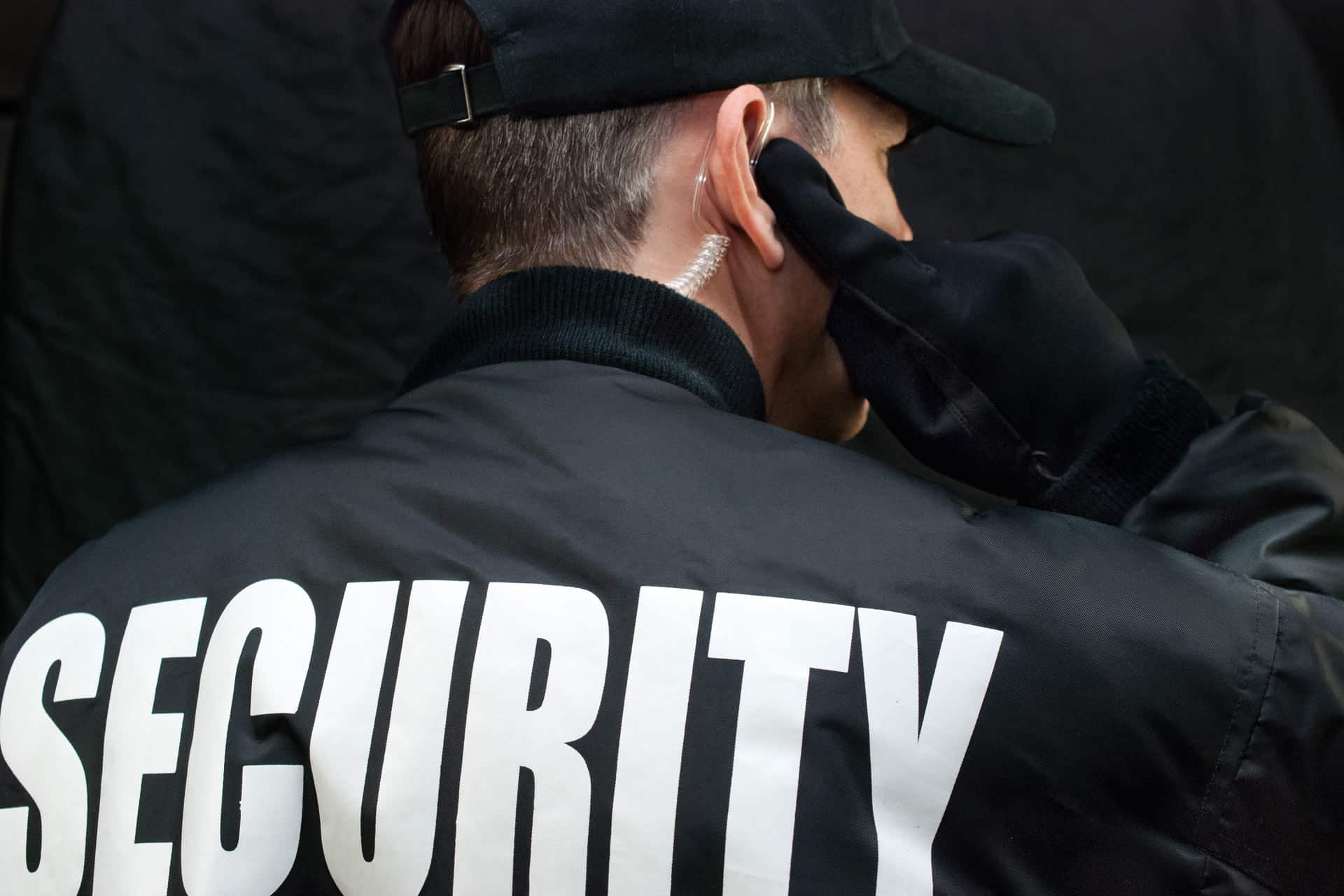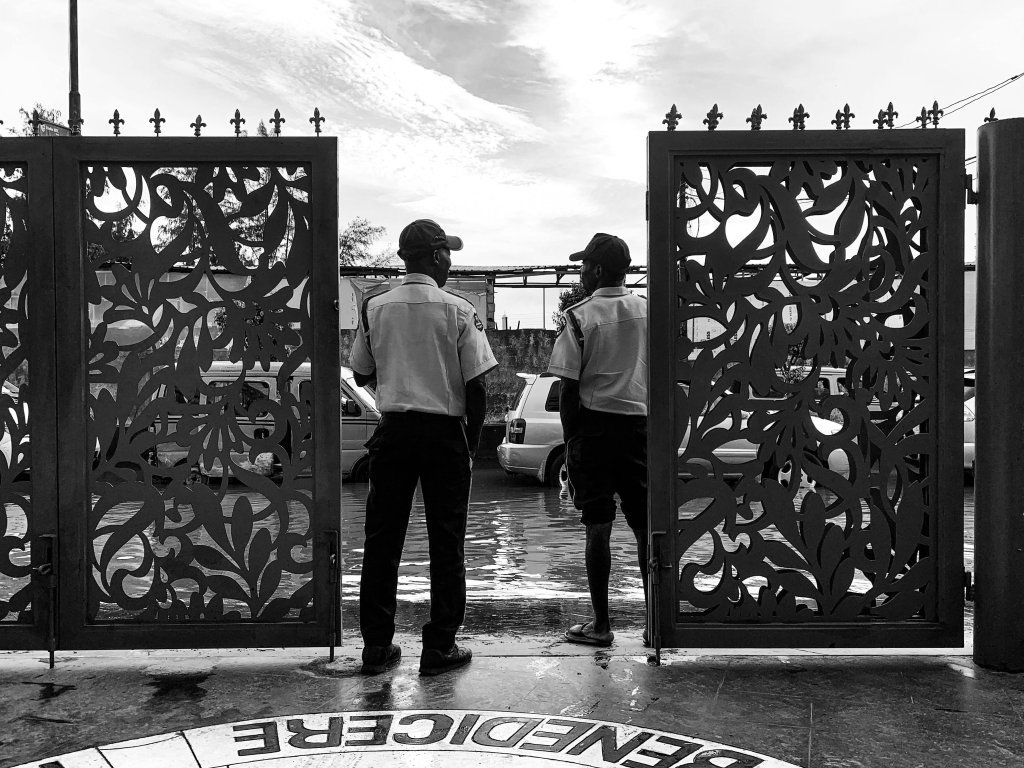
In an increasingly complex and unpredictable world, the role of a security guard stands as a cornerstone of safety and protection.
But who exactly is a security guard? Far more than a uniformed figure at a checkpoint, a security guard is a trained professional dedicated to safeguarding people, property, and assets against potential threats.
At Black Tiger Company for Security Services and Private Guards, we recognize the critical importance of these individuals in maintaining order and mitigating risks, particularly in high-stakes environments such as Iraq.
This comprehensive guide explores the definition, roles, responsibilities, qualifications, and evolving significance of security guards, providing insights that underscore their indispensable value in modern society.
Defining a Security Guard: The Fundamentals
A security guard, also known as a security officer or private guard, is an individual employed to protect assets, enforce regulations, and ensure the safety of designated areas or persons.
Unlike police officers, who serve under government authority, security guards work for private organizations, such as businesses, residential communities, or firms like Black Tiger. Their main focus is prevention—stopping crime through a visible presence and proactive steps rather than responding after incidents occur.
In fact, security guards serve as the first line of defense in various settings. They monitor surroundings, respond to incidents, and collaborate with authorities when necessary. According to industry standards set by organizations like the International Foundation for Protection Officers (IFPO), a security guard must embody vigilance, integrity, and professionalism to effectively fulfill their duties.
Key Characteristics of an Effective Security Guard
To excel in this profession, security guards must possess a blend of physical, mental, and interpersonal attributes:
- Physical Fitness: Patrol areas, respond to emergencies, and handle conflicts confidently.
- Observational Skills: Detect suspicious behavior or risks with keen attention.
- Communication: Interact clearly with clients, colleagues, and the public.
- Ethical Integrity: Maintain fairness and follow legal and moral standards.
- Resilience: Stay calm under pressure, especially in high-risk areas like Iraq.
Roles and Responsibilities of a Security Guard
The scope of a security guard’s duties varies depending on the assignment, but core responsibilities remain consistent across industries. At Black Tiger, our guards are trained to adapt to diverse needs, from static site protection to dynamic mobile operations.
Core Responsibilities
- Surveillance and Monitoring: Use CCTV, access control systems, and patrols to monitor premises, detect unauthorized entry, and report issues.
- Access Control: Manage entry and exit points, verifying IDs and logging visitors to ensure only authorized access.
- Incident Response: Handle emergencies like fires or security breaches calmly, providing first aid if trained.
- Patrol Duties: Conduct regular rounds to prevent threats and spot vulnerabilities, especially in large or off-hour facilities.
- Reporting: Keep detailed records of activities and incidents to support investigations and compliance.

Specialized Roles in High-Risk Areas
In challenging environments like Iraq, security guards take on advanced tasks:
- Threat Assessment: Identify risks in real-time and suggest preventive measures, supporting facility security assessments.
- Escort and Protection: Provide close protection for VIPs or assets, tied to executive protection and asset protection.
- Convoy Security: Protect transported goods or personnel, as in cash in transit with armored vehicles.
- Counter-Surveillance: Detects and counter espionage or threats, a key part of high-threat protection.
Qualifications and Training Required for Security Guards
Becoming a security guard requires a combination of formal education, certifications, and practical experience. While entry-level positions may have minimal barriers, professional roles—especially in specialized firms—demand higher standards.
Basic Qualifications
- Age and Background: Candidates must be at least 18, with a clean criminal record and valid identification.
- Education: A high school diploma is typically required; advanced roles may need further studies in criminal justice or similar fields.
- Licensing: In Iraq, security guards require a Ministry of Interior license, obtained through background checks and verified training.

Essential Training Program
Training equips guards with critical skills, aligned with international standards at Black Tiger:
- Basic Security Training: Teaches core skills like patrolling, report writing, and understanding legal boundaries.
- Specialized Certifications: Includes CPR/First Aid, firearms use for armed guards, and defensive techniques.
- Advanced Courses: Focus on high-risk scenarios, such as mobile security teams training for convoy operations, following standards from organizations like IFPO or ASIS International.
- Continuous Development: Regular drills and updates on new threats ensure guards stay sharp, supporting B.T.C services.
Types of Security Guards
- Unarmed Guards: Focus on observation and de-escalation in low-risk settings like retail or events.
- Armed Guards: Handle high-risk tasks, such as high-threat protection, using firearms training.
- Specialized Roles: Include personal bodyguards for VIPs, event security, corporate guards, residential protection, and mobile patrols for broader coverage, as seen in mobile security teams.
If you are interested in knowing more about the type of security guards, you can check Type Of Security Guards.
Challenges Faced by Security Guards
- Physical Risks: Exposure to violence or hazardous conditions.
- Mental Strain: High-stress environments requiring constant alertness.
- Regulatory Compliance: Navigating complex laws in regions like Iraq.
- Technological Adaptation: Integrating AI and drones into traditional roles.
Addressing these through robust training and support is essential for sustained effectiveness.
FAQ
What is the difference between a security guard and a police officer?
A security guard focuses on private property protection and prevention, with limited authority compared to police officers, who enforce public laws and have arrest powers.
Do security guards need to be armed?
Not always; it depends on the risk level. Unarmed guards suffice for low-threat areas, while armed guards are necessary for high-risk environments like those in Iraq.
How much training does a security guard receive?
Basic training ranges from 40-80 hours, with advanced programs extending to months. Ongoing training is required for certifications and skill maintenance.
Can security guards work in international settings?
Yes, many do, especially with firms like Black Tiger, which operates under international standards and holds registrations, including with the United Nations via partnerships.
What industries hire security guards the most?
Common sectors include corporate, retail, healthcare, energy, and logistics. In Iraq, demand is high in oil & gas, diplomatic missions, and construction.
How do security guards handle emergencies?
They follow established protocols: assess the situation, alert authorities, provide immediate aid, and document the incident for follow-up.
In conclusion, security guards are more than just observers. They are skilled protectors who ensure safety in an unpredictable world. Their role is vital, especially in high-risk areas like Iraq. At Black Tiger Company, we provide professional, tailored security solutions backed by over 50 years of expertise, delivering peace of mind.
If you require expert security guards or related services, contact us today to discuss your needs. Our team is always ready to serve.
Contact Information:
Phone: 00964 780 8999 882 | 00964 770 2222 853
Email: ceo@blacktiger-iq.com
Address: Baghdad – Al Mansour – AL Dawoody Street
